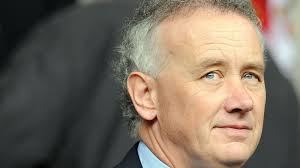By Paul Nicholson
May 5 – English Football League chairman Rick Parry painted the picture of a £200 million financial hole for the league and its 72 clubs by September, on top of an already existing wage issue that sees Championship club owners putting in on average £16 million of their own money to reach the Premier League.
Giving evidence to the Digital, Culture, Media and Sport committee about the impact of coronavirus, he pointed out that in 2018 Premier League wages were £2.9 billion with a TV deal worth £3 billion. In the EFL, he said, wages in 2018 were £1bn while the TV contract was £100 million, just 10% of wages.
Parry said that he “completely agreed” that a rescue package is needed to help support EFL clubs, and that the Premier League could help in that respect. The UK government has already provided a rescue package of £16 million of the England’s professional Rugby League clubs though it was not clear how far it is prepared to help the far wealthier sport of football.
Sources of rescue finance are more likely to include greater solidarity support payments from the Premier League. “The Premier League has said if they’re allowed to play then they will be in a position to talk to us about support for the lower leagues,” said Parry. “We await that day – discussions to date, I think it’s fair to say, have been limited.”
Clubs relegated from the Premier League already receive parachute payments but Parry said they weren’t the solution.
“Parachute payments are an evil that needs to be eradicated,” he said. “We have six clubs in the Championship receiving parachute payments giving them an average of £40m per club. The other 18 clubs get £4.5m each, so they’re then struggling to keep up.”
None of this solves the problem of the third and fourth tier leagues where clubs rely on local sponsors and gate revenues.
Parry said the EFL just rely on going from “one bailout to another bailout” and that a “complete reset” in terms of revenue distribution was needed. It is also clear that the clubs will need to introduce some form of self-help via tightening their own budgets.
One solution to get control of costs would be a salary cap and the EFL is understood to have already sent a letter to clubs proposing a £2.5 million salary cap to cover all player costs and agents’ fees for League One clubs and £1.25 million for League Two.
The highest paid player at League One clubs earns on average £247,188 annually and £113,951 at League Two. Early indications are that clubs would be prepared to commit wage caps.
Parry was clear that change was inevitable and needed to be soon. “We have 1,400 players coming out of contract at the end of June,” he said. “That is a train coming down the tunnel very quickly. They are going to be extremely concerned about their futures.”
Contact the writer of this story at moc.l1713602489labto1713602489ofdlr1713602489owedi1713602489sni@n1713602489osloh1713602489cin.l1713602489uap1713602489

